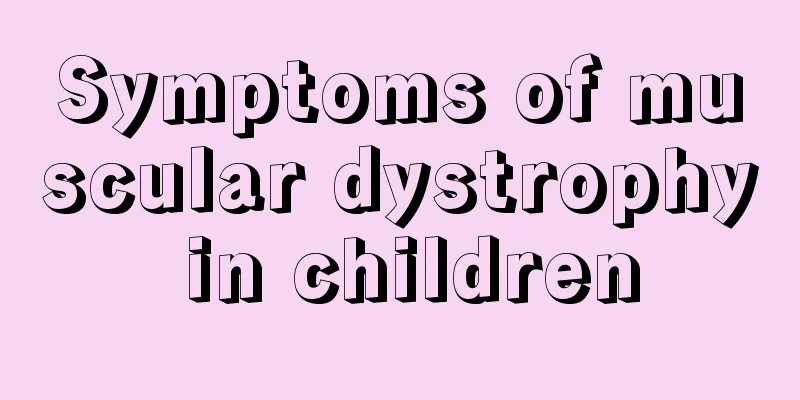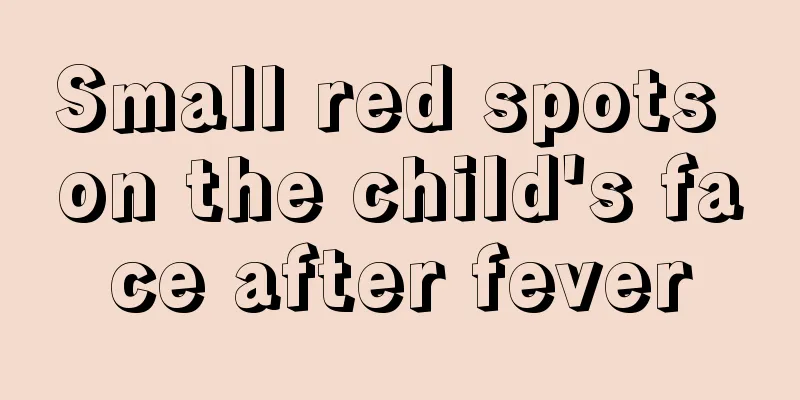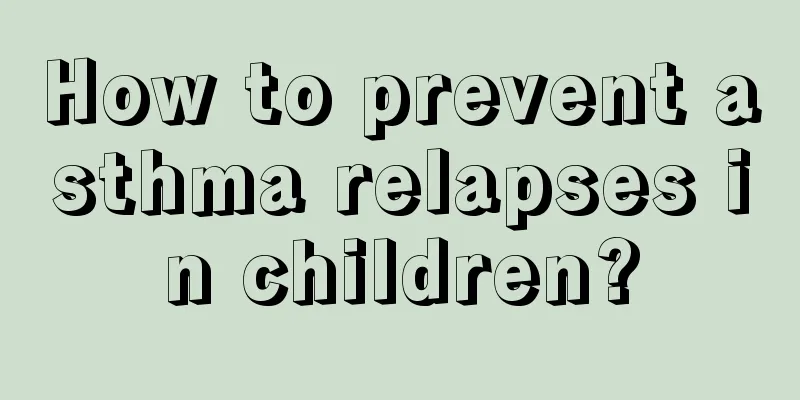Will the baby have diarrhea if his feet are cold?

|
In daily life, whether it is adults or children, there are many nerves in the soles of the feet, and it is also a very sensitive area. Generally speaking, if the soles of the feet are cold, it is easy to cause the baby to get sick. Parents must pay attention not to let the baby's feet or stomach catch cold, otherwise it is easy to cause diarrhea. If the baby has symptoms of diarrhea, parents need to observe whether the baby is dehydrated. Lead to coma, convulsions, bloody and mucous stools, sunken anterior fontanelle, dry skin and lips, etc. Symptoms of diarrhea in babies Infant diarrhea is a clinical syndrome caused by different causes. It mainly occurs in infants under 2 years old. Newborns usually have up to 10 bowel movements a day, but as they get older this may range from a few times a day to once or twice a week. First, you need to understand your baby’s normal bowel habits so that you can determine whether it is diarrhea at the first time. In addition to observing the shape of the stool, you should also pay attention to the smell of the stool. The frequency of bowel movements is more than usual, the texture of the stool is thinner than usual, and there may even be watery stools. It may also seem like it is squirting out of the buttocks. These may be the symptoms of diarrhea in infants, which are usually accompanied by gastrointestinal discomfort symptoms such as loss of appetite and abdominal pain. The main symptoms are: 1. Mild symptoms: five to eight bowel movements a day, possibly accompanied by a mild fever or vomiting. The stool is yellow-green, mucus-containing and egg-drop soup-like, accompanied by mild abdominal distension and hyperactive bowel sounds. 2. Moderate diarrhea: Ten bowel movements a day, loose watery stools, sour and smelly, and possible moderate fever. 3. Severe cases: frequent diarrhea, eight to fifteen bowel movements a day, watery and large in volume, with a sour odor, irritability, drowsiness, listlessness, and even coma and convulsions, bloody and mucous stools, sunken anterior fontanelle, dry skin and lips, etc. 4. Some patients may experience obvious dehydration, acidosis, and electrolyte imbalance, such as hypokalemia or hypomagnesemia. Causes of diarrhea in newborns 1. Physiological loose stools Since the intestinal function of normal newborns is not yet fully developed, there are obvious differences in the stool characteristics of babies with different feeding methods. For example, breast milk is easily absorbed by newborns who are breastfed, so breastfed babies generally have more bowel movements and may experience false diarrhea. The baby may have up to 7-8 bowel movements a day, or even 10-12 times. The stools are usually thin. If the baby is in good spirits, eats well, and has normal weight gain, there is no need to worry. 2. Pathological factors (1) Non-infectious factors Improper feeding: Parents feed their newborn babies milk powder that is too concentrated, inappropriate, sugar is added to the milk powder, the milk is too cold, or starchy foods such as rice paste are added too early, which can easily lead to food accumulation in the baby and cause diarrhea. Allergy to milk powder: 2-7 out of 100 babies are allergic to milk powder protein. Newborn babies with hereditary allergies are more likely to develop allergic symptoms to milk powder protein. (2) Viral or bacterial infection Cold: When babies have a cold, they often have diarrhea symptoms. Therefore, as long as the cold is cured fundamentally, the diarrhea will naturally heal. Viral or bacterial infection: Newborns have poor immune function, especially intestinal immunity. When the intestine is infected, they are unable to weaken and neutralize the virulence of bacteria. It can be divided into intestinal infection and extraintestinal infection. Intestinal infections mainly occur in newborns who are bottle-fed or mixed-fed, because the disease enters the body through the mouth due to unclean feeding utensils. The most serious is neonatal epidemic diarrhea. Extraintestinal infections are mainly caused by the influence of pathogen toxins or the underdeveloped nervous system, which leads to digestive system dysfunction and increased intestinal motility, causing diarrhea. When newborns suffer from pneumonia and sepsis, bacteria can sometimes penetrate the intestinal wall from outside the intestine or in the blood and penetrate into the intestine, causing enteritis. |
<<: 8 month old baby has diarrhea
>>: What should I do if my baby keeps having diarrhea?
Recommend
What is the height and weight standard for 10-year-old children?
It is said that witnessing the growth of children...
What should I do if my child has cough and asthma?
When the weather gets colder and the seasons chan...
Can children eat shrimp when they have a cough?
Children are prone to loss of appetite when they ...
Nighttime Teeth Grinding in Children
Most adults tend to grind their teeth when they s...
Why is there a gurgling sound in the baby's throat?
The physical health of newborns is of great conce...
What can children eat to gain weight? These nutrients should keep up
Many mothers are envious when they see other babi...
Can a one-year-old baby eat walnut porridge?
I believe everyone knows that walnuts have the ef...
What medicine is better for children with diarrhea?
Since children's digestive system is not perf...
What should I do if my child has a stroke?
Stroke is a very common phenomenon. It is more co...
Why are there blue spots around baby's lips?
When a child first comes into this world, unless ...
How to judge whether the baby's tongue is short
When babies are young, many organs will develop s...
What medicine should a 6-year-old child take for diarrhea
In daily life, we sometimes suffer from vomiting ...
Why newborn babies are restless when sleeping
It is said that the baby is the apple of the pare...
What should children drink to grow taller
Although we all know that how tall a person can g...
What to do if your child stops breastfeeding
When the baby is weaning, the mother will feel un...









